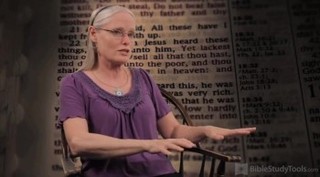
- Recent Translations
- All Translations
Ester 1:12
Share
Settings
Ester 1:12 Meaning and Commentary
But the queen refused to came at the king's commandment by his
chamberlains
Even though he sent by them again, as the Targum; and so says Josephus F15; which might not purely arise from pride in her, and contempt of him, but because she might conclude he was drunk, and knew not well what he did; and therefore had she come at his command, when he was himself and sober, he might blame her for coming, nay, use her ill for it, and especially if she was to come naked, as say the Jews F16; and besides, it was contrary to the law of the Persians, as not only Josephus F17, but Plutarch F18 observes, which suffered not women to be seen in public; and particularly did not allow their wives to be with them at feasts, only their concubines and harlots, with whom they could behave with more indecency; as for their wives, they were kept out of sight, at home F19; and therefore Vashti might think it an indignity to be treated as an harlot or concubine:
therefore was the king very wroth, and his anger burned in him;
which was the more fierce, as he was inflamed with wine.
F15 Antiqu. l. 11. c. 6. sect. 1.
F16 Targum in loc. Midrash Esther, fol. 90. 1.
F17 Antiqu. l. 11. c. 6. sect. 1.
F18 In Themistoele.
F19 Macrob. Saturnal. l. 7. c. 1.
Ester 1:12 In-Context
Videos for Ester 1:12
